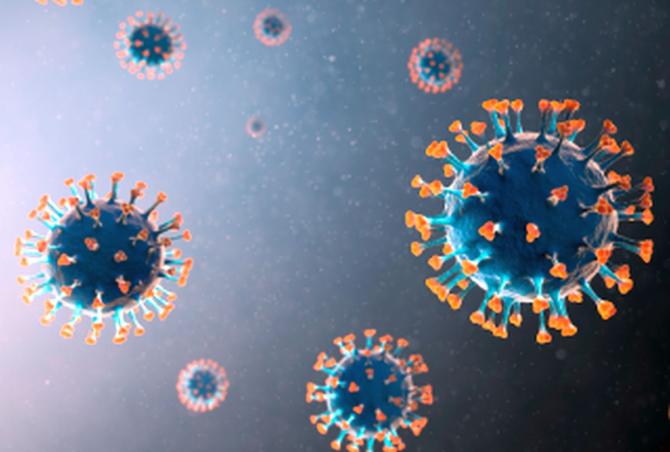Around 40 cases of the Delta plus variant, classified as a variant of concern (VOC), have been detected sporadically in Maharashtra, Kerala and Madhya Pradesh, the Union health ministry said on Wednesday.

Delta variant as well as all Delta sub-lineages including Delta plus are classified as VOC, it said.
"As of now among the samples sequenced (45000+) in India, Delta plus variant -- AY.1 --has been observed sporadically in Maharashtra, Kerala and Madhya Pradesh, with around 40 cases identified so far and no significant increase in prevalence," the ministry said in its statement.
These three states have been advised to strengthen surveillance and take appropriate public health measures.
After the report of AY.1 by the Public Health England (PHE) on June 11, retrospective analysis of samples revealed the first occurrence of this lineage from a sample collected from Maharashtra. The sample was collected on April 5.
As of June 18, 205 sequences of AY.1 lineage was detected worldwide, with the USA and the UK having over half of the known cases, the statement said.
INSACOG had recently identified a viral variant (delta, B.1.617.2). This viral variant has also been seen in nine other countries of the world.
INSACOG is an Indian consortium of 28 labs, established by the Government of India to carry out genome sequencing of the virus causing the COVID-19 pandemic.
The World Health Organisation has introduced a classification as VOC (variant of concern) and VOI (variant of interest), with the evolution of several variants around the globe.
Delta variant as well as all Delta sub-lineages including Delta Plus are classified as VOC, the statement said.
The Indian SARS-CoV-2 Genomic Consortia (INSACOG)reported the evolution of Delta plus variant (B.1.617.2) + K417N lineage of SARS-CoV2 called as B.1.617.2.1/ AY.1.
The Delta plus variant B.1.617.2.1/ (AY.1) is characterized by the K417N mutation in spike protein, the statement said.
The spike protein aids the virus to gain receptor-mediated entry into human cells. K417N corresponds to the change of amino acid lysine (K) to asparagine (N) at the 417th position of spike protein. There are other Delta plus variants with other mutations.
The AY.1 is the most well-known, but these are not identical. A second clade found in sequences uploaded to GISAID from the USA, is now designated AY.2, but is not seen in India yet, the statement said.
"All Delta sub-lineages are treated as a variant of concern VOC, although properties of AY.1 are still being investigated. Currently, the variant frequency of AY.1 is low in India. Cases with AY.1 have been mostly reported from nine countries of Europe, Asia and America," the ministry statement stated.
The SARS-CoV-2 virus causing COVID-19 disease is mutating continuously with increase in the number of infections both across the world and in India.
Mutations help the virus to become either more transmissible or more virulent or both. With time these mutations known as Variants of Interest (VOI) increase in frequency in the selected population and are considered then as VOC.











 © 2025
© 2025